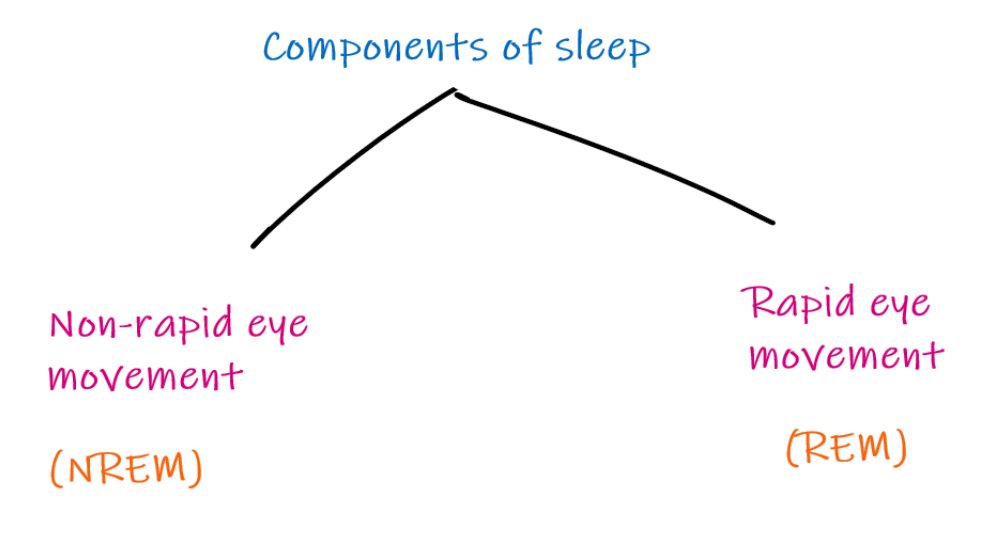Why We Sleep by @sleepdiplomat is the most informative book that I read this year.
Here is how it completely transformed my views on sleep. A thread.
Here is how it completely transformed my views on sleep. A thread.
1/n I grew up with a sense of hubris over my ability to get by with very little sleep whenever the situation demanded. I felt it was something to aspire for as I was constantly hearing about top CXOs & politicians thriving on 4-5 hrs of sleep.
2/n Sleeping for less than the recommended 7-9 hrs didn't even feel different in most cases. But it turns out that we are incapable of understanding our need for sleep & the cognitive impairment that lack of sleep causes.
3/n There is research that proves that sleeping for 6 hrs or less consistently over 14 days leads people to perform as badly on cognitive tasks as people who haven't slept in 2 days. https://pubmed.ncbi.nlm.nih.gov/12683469/
5/n Circadian rhythm is our internal 24 hour clock. Among other things, it regulates our body temperature which starts lowering as we approach our bedtime & reaches the minima 2 hrs after we fall asleep.
6/n A hormone called melatonin is closely related to the circadian rhythm. Its secretion—controlled by light entering our eyes—increases as night approaches & gradually falls as the sun rises.
7/n Two ways to ensure you fall asleep easily:
a) Lower body & room temperature - warm bath, washing of face/feet, AC/thermostat
b) Reduce exposure to light as bedtime nears - use lamps, warm shades & night light feature on devices
a) Lower body & room temperature - warm bath, washing of face/feet, AC/thermostat
b) Reduce exposure to light as bedtime nears - use lamps, warm shades & night light feature on devices
8/n The other factor that helps us fall asleep is 'sleep pressure' - regulated by a hormone called adenosine. The longer we are awake, the more this pressure increases due to its accumulation.
9/n Caffeine interferes with its functioning by blocking the adenosine receptor sites in the brain thus delaying our urge to sleep. Its effect peaks 30 mins after consumption & half of it continues to flow in the blood even after 5-7 hrs. Takeaway - avoid intake post evening.
10/n We oscillate between two kinds of sleep throughout the night. These are characterised by the movement of our eyeballs.
11/n NREM sleep dominates the early part of night & REM sleep's share increases as morning apporaches.
img src ~ https://www.snorelab.com/the-architecture-of-sleep/
img src ~ https://www.snorelab.com/the-architecture-of-sleep/
12/n NREM sleep is deep sleep where information storage and strengthening of memory happen. Whatever we perceive or learn in the wake state is processed in NREM sleep (relevant bits are transferred to a long term storage site & the not so useful ones are discarded).
13/n REM sleep is where we witness our dreams. Our body goes into paralysis for the duration of our dreams to ensure that we don’t act on them. It is remarkable how nature has designed us in such intricately complex ways.
14/n There are two ways in which REM sleep helps us:
a) It is nature’s way of offering therapy
b) It fuels creativity
a) It is nature’s way of offering therapy
b) It fuels creativity
15/n Our dreams might not be a reflection of what we are experiencing in real life in the exact sense but research has shown that there is considerable overlap in the emotional themes during wakefulness and in dreams. https://www.ncbi.nlm.nih.gov/pmc/articles/PMC6428732/
16/n In REM sleep, the secretion of a stress hormone called noradrenaline stops. It enables us to process our life events but without the attached emotional sting. It is an introspective experience that gives us an autobiographical perspective & helps in emotional healing.
17/n When it comes to aiding our mental prowess, REM sleep is responsible for forming connections between disparate pieces of information stored in the brain thus sharpening our creative and problem-solving capabilities.
18/n These were very interesting insights as I have often viewed sleep sessions laced with dreams as bad ones because of their uncomfortable content or the fact that they felt mentally taxing.
19/n The best part of the book for me was how simply the criticality of sleep is conveyed through our evolutionary journey.
20/n Things changed for us when we figured out how to light a fire. It helped our ancestors move from sleeping on trees to ground thus reducing the risk of falling. This allowed their bodies to slip into paralysis and have dreams as a part of the REM sleep.
21/n Our sleep became intense & efficient - causing us to mature emotionally which led to the formation of strong social bonds and our cognitive intelligence improved. These factors played a critical role in establishing the dominance of Homo sapiens over other species.
22/n Biggest learning - while we can’t bend societal conditions to enable us to get the required seven to nine hours of sleep opportunity every single night for the rest of our lives, we should at least be mindful and try to ensure that the deviations are as minimal as possible.
23/n There's this & a lot more fascinating stuff in the book such as how other animals sleep, the physiology of jet lag, multiple other benefits of sleeping & downfalls of not doing so, changes with age, how genetics is responsible for us being night owls/early birds etc.
24/n Highly recommended book.
Why We Sleep: Unlocking the Power of Sleep and Dreams by Matthew Walker PhD https://www.amazon.com/dp/1501144324/ref=cm_sw_r_tw_dp_x_BE34Fb712WSMH via @amazon
Why We Sleep: Unlocking the Power of Sleep and Dreams by Matthew Walker PhD https://www.amazon.com/dp/1501144324/ref=cm_sw_r_tw_dp_x_BE34Fb712WSMH via @amazon

 Read on Twitter
Read on Twitter





